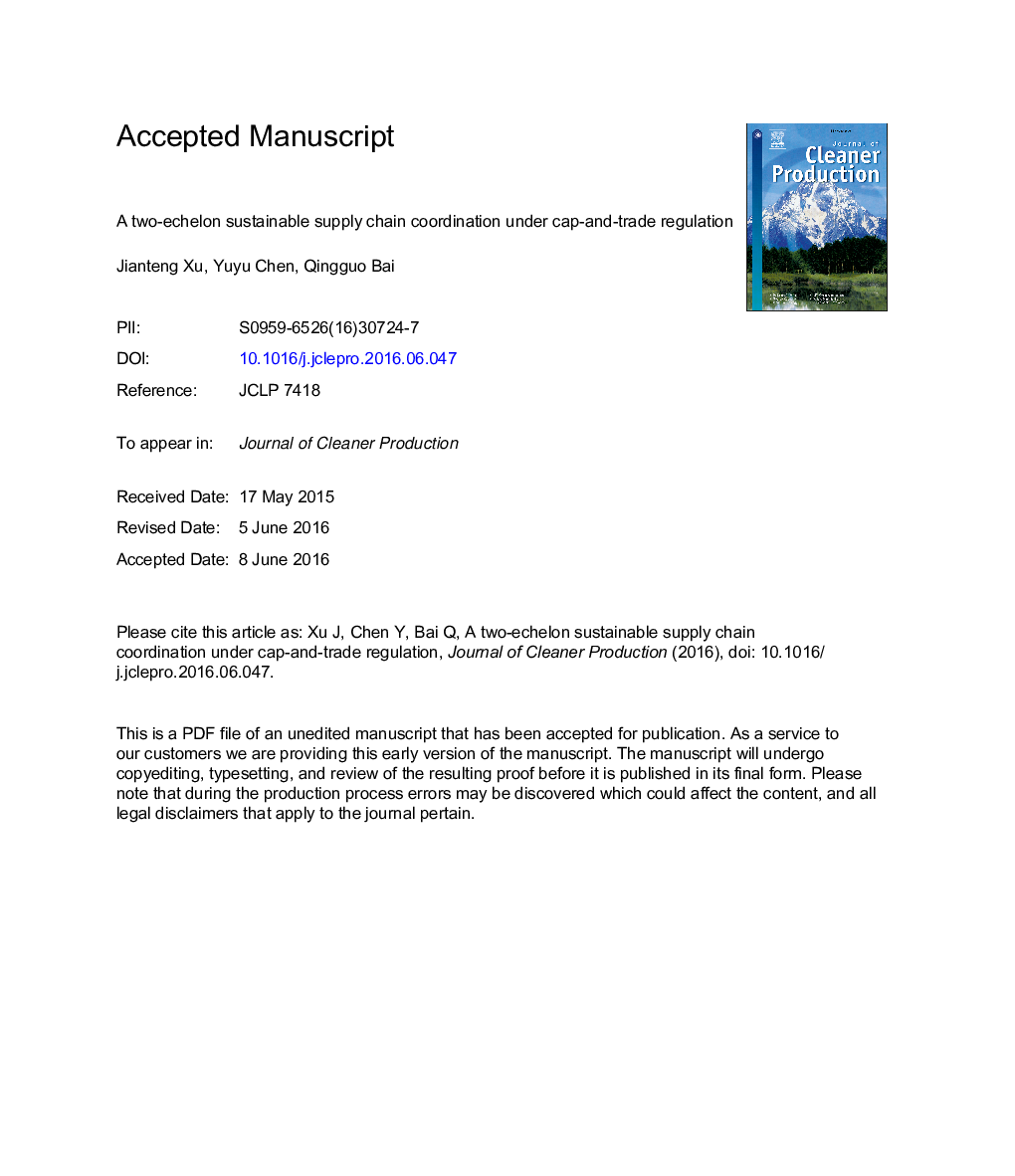| Article ID | Journal | Published Year | Pages | File Type |
|---|---|---|---|---|
| 8101103 | Journal of Cleaner Production | 2016 | 23 Pages |
Abstract
This paper analyses the decision behaviour and coordination mechanisms for a two-echelon sustainable supply chain under a cap-and-trade regulation. In a make-to-order setting, carbon emissions are generated primarily by the downstream manufacturing process, and the market demand of the supply chain is affected by two decision variables, the sustainability level and the selling price. The impact of the unit emissions trading price on the optimal decision variables in both centralized and decentralized systems is revealed. The comparison of decentralized and centralized systems shows that the increase in total profit in centralized system is at most 1/3 that in decentralized system. To achieve the same profit as the centralized system, we consider two contracts to coordinate the sustainable supply chain, revenue-sharing and two-part tariff contracts. By analysing the conditions for a win-win outcome, we prove that only the two-part tariff contract can lead to perfect coordination. Finally, sensitivity analysis of the key parameters is undertaken as part of a numerical example illustrating the theoretical results.
Related Topics
Physical Sciences and Engineering
Energy
Renewable Energy, Sustainability and the Environment
Authors
Jianteng Xu, Yuyu Chen, Qingguo Bai,
